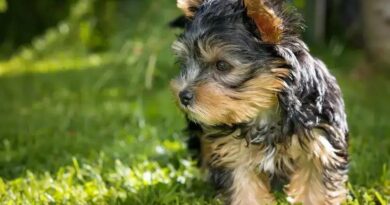What is Optimal performance
What is Optimal Performance in Dogs?
Optimal performance in dogs refers to the peak physical and mental condition that allows a dog to excel in various activities, whether it’s agility, obedience, or simply being a well-behaved companion. Achieving this state involves a combination of proper training, nutrition, and mental stimulation, ensuring that the dog is not only fit but also engaged and happy. Understanding what constitutes optimal performance can help dog owners tailor their care and training methods to meet their pet’s specific needs.
The Role of Nutrition in Optimal Performance
Nutrition plays a crucial role in achieving optimal performance in dogs. A balanced diet rich in proteins, fats, carbohydrates, vitamins, and minerals is essential for maintaining energy levels and supporting muscle development. High-quality dog food formulated for specific life stages or activity levels can significantly impact a dog’s performance. Additionally, hydration is vital; ensuring that a dog has access to fresh water at all times can prevent dehydration, which can hinder performance.
Training Techniques for Optimal Performance
Effective training techniques are fundamental to achieving optimal performance in dogs. Positive reinforcement methods, such as treats and praise, encourage desired behaviors and strengthen the bond between the dog and owner. Consistency in training routines, along with gradual increases in difficulty, helps dogs build confidence and skills. Incorporating a variety of activities, such as obedience drills, agility courses, and interactive games, can keep training sessions engaging and beneficial for the dog’s overall performance.
Mental Stimulation and Its Impact on Performance
Mental stimulation is just as important as physical exercise for optimal performance in dogs. Engaging a dog’s mind through puzzle toys, scent work, and training exercises can prevent boredom and destructive behaviors. A mentally stimulated dog is more likely to focus during training sessions and perform better in various activities. Incorporating mental challenges into daily routines can enhance a dog’s cognitive abilities and overall performance.
The Importance of Regular Exercise
Regular exercise is essential for maintaining a dog’s physical health and achieving optimal performance. Different breeds have varying exercise needs, and understanding these requirements is crucial for dog owners. Activities such as walking, running, swimming, and playing fetch can help maintain a healthy weight, build endurance, and improve overall fitness. A well-exercised dog is more likely to exhibit good behavior and perform well in training and competitions.
Health Monitoring for Optimal Performance
Monitoring a dog’s health is vital for ensuring optimal performance. Regular veterinary check-ups can help identify any underlying health issues that may affect a dog’s ability to perform. Vaccinations, parasite control, and dental care are also essential components of maintaining a dog’s health. Owners should be vigilant for signs of discomfort or changes in behavior, as these can indicate health problems that need to be addressed promptly.
Socialization and Its Role in Performance
Socialization is a key factor in achieving optimal performance in dogs. Exposing dogs to various environments, people, and other animals helps them develop confidence and adaptability. A well-socialized dog is less likely to exhibit fear or aggression, which can hinder performance in training and competitions. Socialization should begin at an early age and continue throughout a dog’s life to ensure they remain well-adjusted and capable of performing at their best.
Understanding Breed-Specific Needs
Different dog breeds have unique characteristics and performance capabilities. Understanding these breed-specific needs is crucial for optimizing a dog’s performance. For instance, herding breeds may excel in agility and obedience, while retrievers may thrive in scent work and retrieving tasks. Tailoring training and activities to align with a dog’s natural instincts and abilities can enhance their performance and overall satisfaction.
The Impact of Age on Optimal Performance
Age can significantly influence a dog’s performance capabilities. Puppies and young dogs are typically more energetic and responsive, while older dogs may require adjustments to their training and exercise routines. As dogs age, their physical abilities may decline, necessitating a focus on maintaining mobility and comfort. Understanding the impact of age on performance can help owners adapt their care and training strategies to support their dogs throughout their lives.
Creating a Balanced Routine for Optimal Performance
To achieve optimal performance, dog owners should create a balanced routine that incorporates training, exercise, mental stimulation, and socialization. A well-rounded approach ensures that all aspects of a dog’s well-being are addressed, promoting both physical and mental health. By regularly assessing and adjusting this routine based on the dog’s needs, owners can help their pets reach their full potential and enjoy a fulfilling life.



